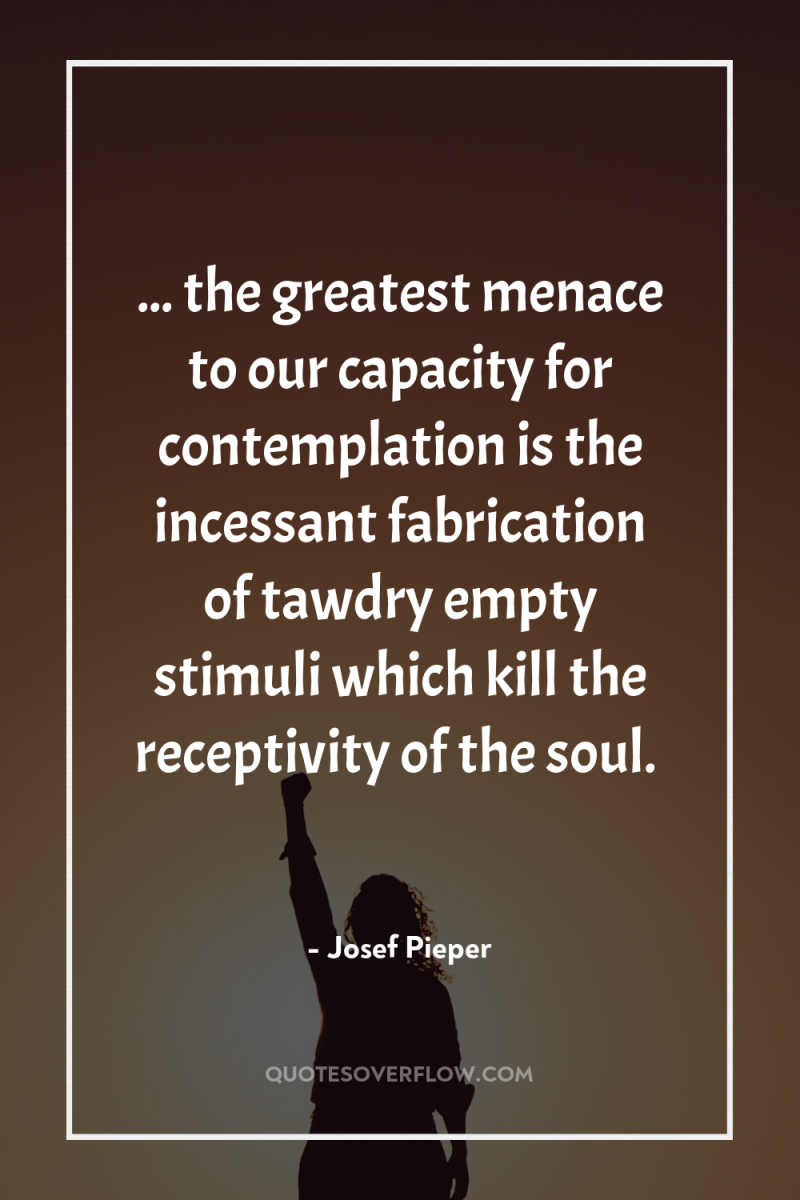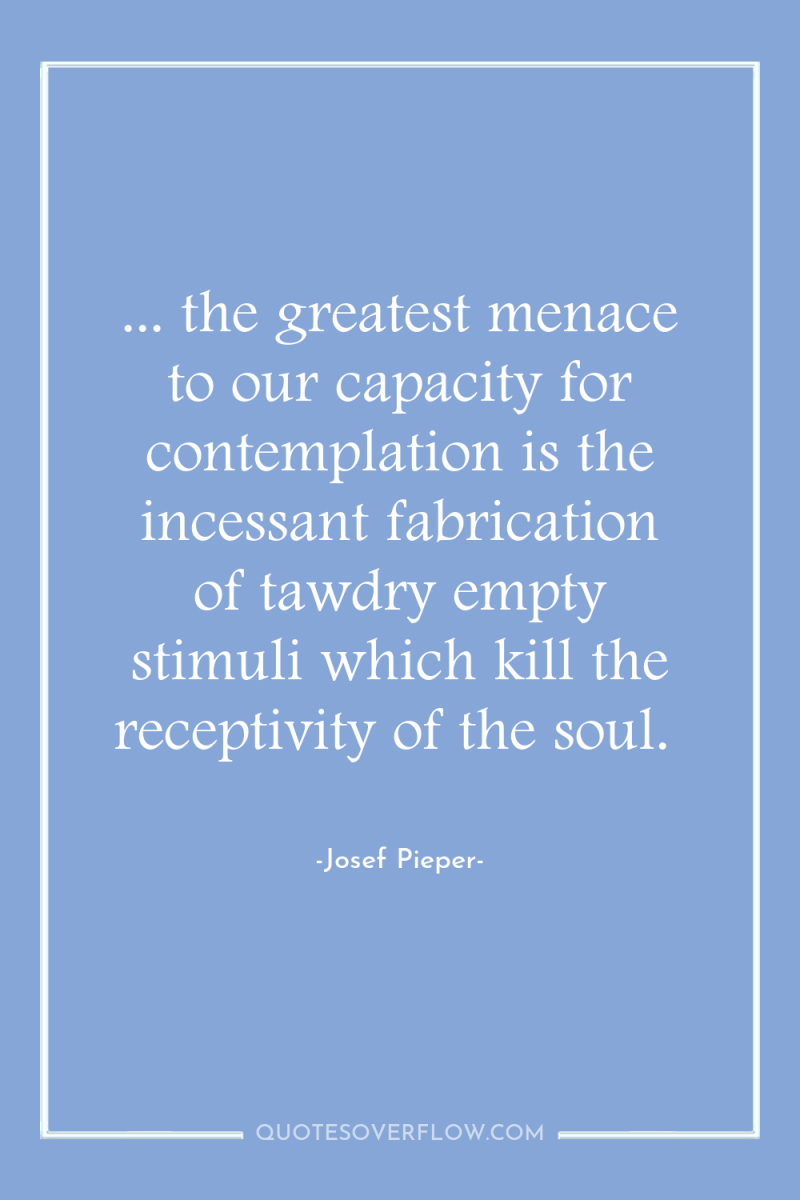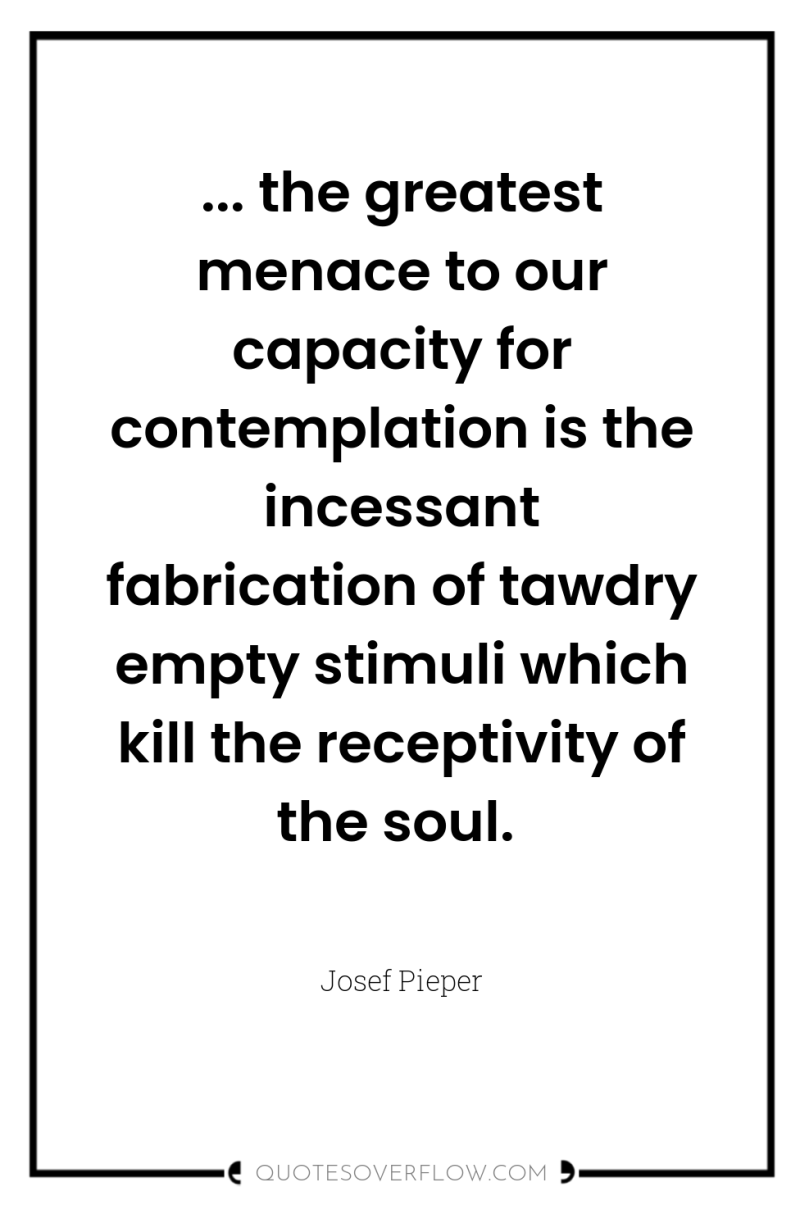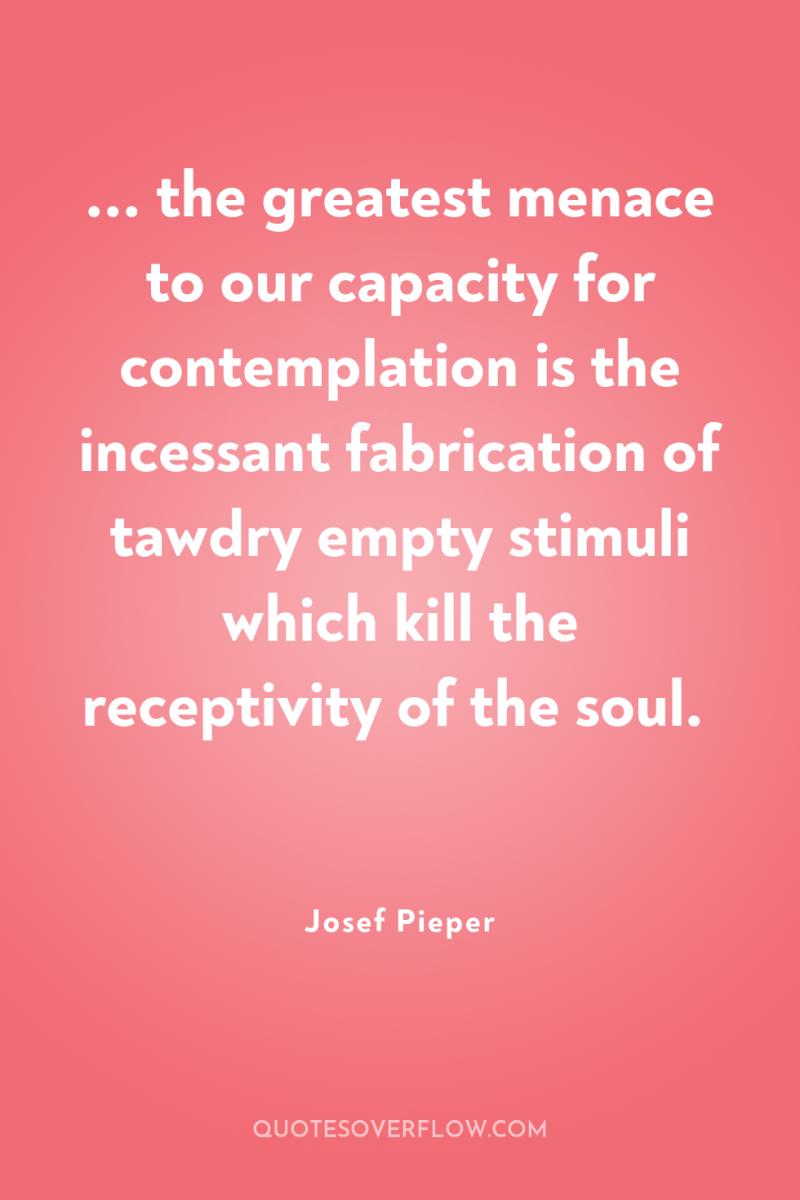Josef Pieper... the greatest menace to our capacity for contemplation is the incessant fabrication of tawdry empty stimuli which kill the receptivity of the soul.




About This Quote
Frederick Nietzsche, a German philosopher, said that “the greatest menace to our capacity for contemplation is the incessant fabrication of tawdry empty stimuli which kill the receptivity of the soul.” He believed that this assault on our ability to engage in contemplation was making life immeasurably worse for everyone. We should all be able to sit down and engage in deep thought about important issues; however, we are instead subjected to the loud blaring noise of television commercials and mindless chatter. These endless distractions are robbing us of our ability to reflect upon ourselves and other things.
Source: Happiness And Contemplation
Some Similar Quotes
- Out beyond ideas of wrongdoing and rightdoing there is a field. I'll meet you there. When the soul lies down in that grassthe world is too full to talk about.
- I think... if it is true that there are as many minds as there are heads, then there are as many kinds of love as there are hearts.
- What Is Love? I have met in the streets a very poor young man who was in love. His hat was old, his coat worn, the water passed through his shoes and the stars through his soul
- Do you think, because I am poor, obscure, plain and little, I am soulless and heartless? You think wrong! - I have as much soul as you, - and full as much heart! And if God had gifted me with some beauty and much wealth,...
- Goodbyes are only for those who love with their eyes. Because for those who love with heart and soul there is no such thing as separation.
More Quotes By Josef Pieper
- The delight we take in our senses is an implicit desire to know the ultimate reason for things, the highest cause. The desire for wisdom that philosophy etymologically is is a desire for the highest or divine causes. Philosophy culminates in theology. All other knowledge...
- Earthly contemplation means to the Christian, we have said, this above all: that behind all that we directly encounter the Face of the incarnate Logos becomes visible.. Contemplation does not ignore the "historical Gethsemane, " does not ignore the mystery of evil, guilt and its...
- Who among us has not suddenly looked into his child's face, in the midst of the toils and troubles of everyday life, and at that moment "seen" that everything which is good, is loved and lovable, loved by God! Such certainties all mean, at bottom,...
- Here we must take account of one of St. Thomas's conceptual distinctions, which at first seems like unnecessary caviling. It is the distinction between "uncreated" and "created" happiness. We have here something which, while not at all obvious, is nevertheless fraught with consequences for our...
- The common element in all the special forms of contemplation is the loving, yearning, affirming bent toward that happiness which is the same as God Himself, and which is the aim and purpose of all that happens in the world.